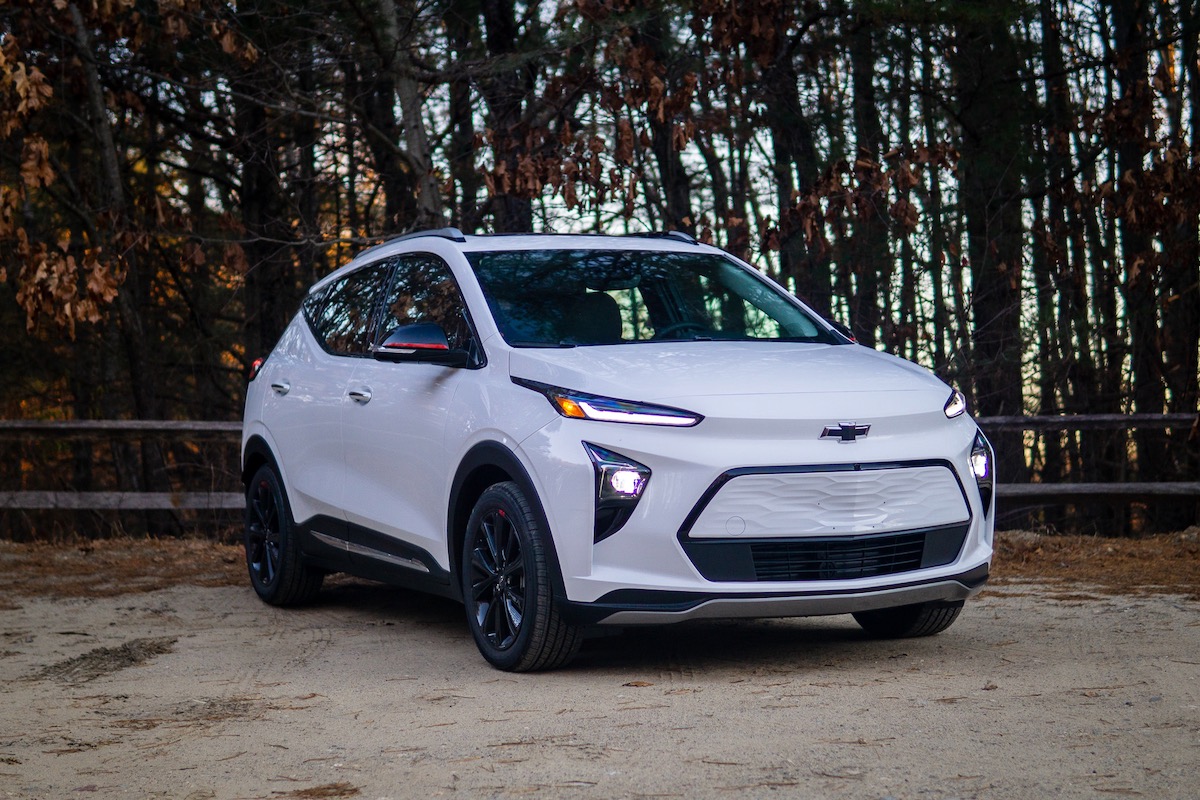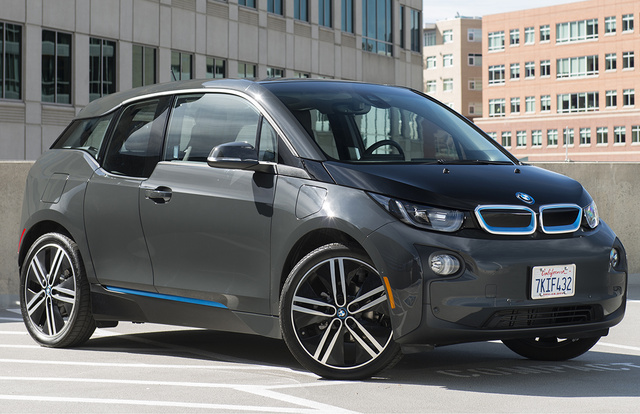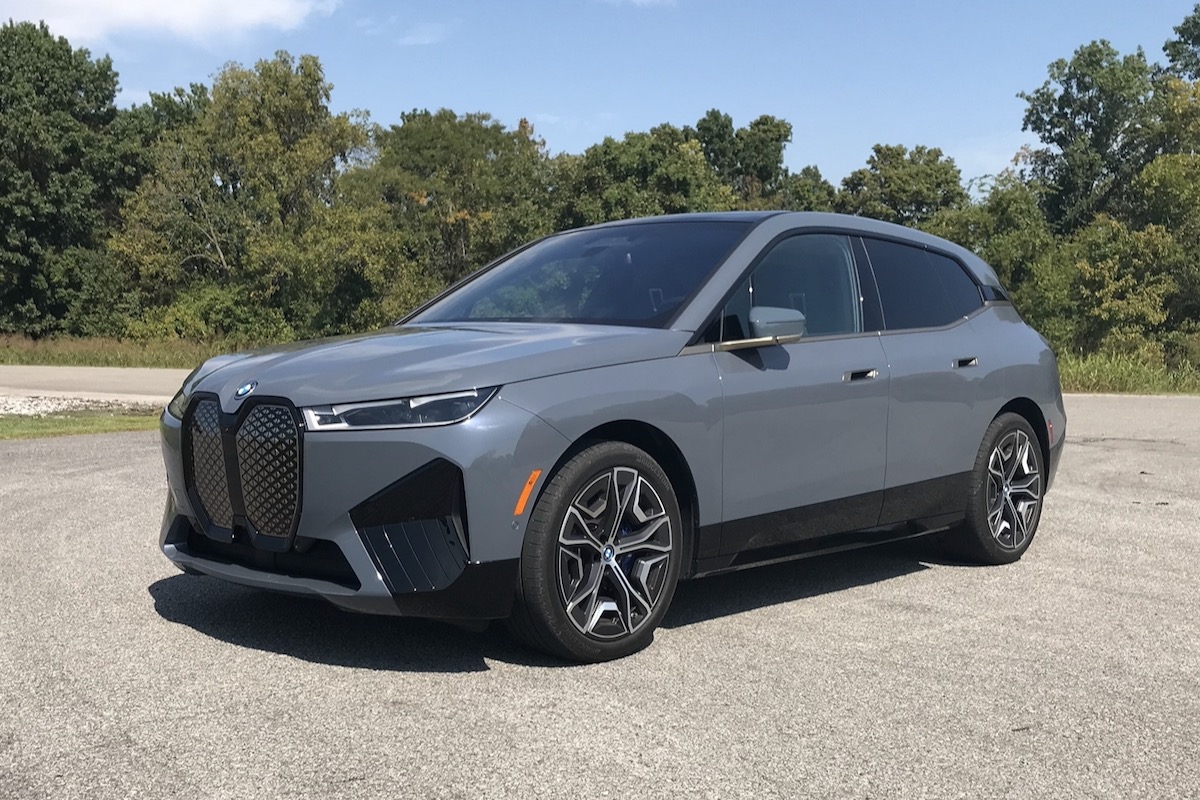Unlike used car transactions on crossovers and pickups, used electric vehicle (EV) purchases represent an opportunity to save a ton of money over the cost of a new model. Used models of electric vehicles tend to be available even when the price of used cars is typically high, and they sell for short money even when the price of gas is on the march. The cost of depreciation on the used EV market is just as dramatic as the depreciation of a European luxury car. At mid-year 2024, the average price of a used electric car was down 24% compared with 2023’s prices.
There's quite a bit of research and investigation you want to do on a used EV that's common to buying any used car, but there's some specific information you should be aware of before you venture into the marketplace for used battery electric vehicles.
Buying a Used Electric Vehicle
- Pros and Cons of Buying a Used EV
- Living with a Used EV
- The Tax Credit
- The Fringe Benefits
- The Vehicle Inspection
- The Batteries
- The Cost of Battery Replacement
- The Bottom Line
Pros and Cons of Buying a Used EV
Pros:
- Less expensive
- Less maintenance
- Cleaner emissions
- Great around-town performance
- New technology
Cons:
- Limited driving range
- Uncertain charging infrastructure
- Long charging times
- Potential battery-replacement cost

Living with a Used EV
Before buying a used EV, it’s worth considering the lifestyle changes this new technology demands. First, driving range remains the primary detractor for many shoppers, and for good reason. Range anxiety is real; American highway infrastructure is vast, and while a 250-mile driving range may suffice for many shoppers, those living in rural areas (especially where charging stations are few and far between, or the only options are no DC fast chargers) may find that they need a longer-range vehicle. Further, whether due to battery degradation over time or the older battery tech that underpins older EVs, many models on the used market can’t travel 250 miles on a charge.
That said, even older models make a lot of sense for the right shopper. If you have the ability to charge your EV at home, and your commute is less than 50 miles each way, an EV can save you money and time by keeping you away from gas stations. They’re also lovely to drive, particularly in urban areas, thanks to their quick acceleration and near-silent operation. Beyond the lower cost of ownership and great around-town performance, EVs are cleaner to operate than gas- or diesel-powered vehicles, and they’re typically packed with newer technology, too. If you’re considering an EV, take a test drive. We suspect you’ll be impressed!
With regards to the buying process, an EV purchase has a few extra benefits to consider versus a typical gas vehicle.

The Tax Credit
One of the most critical things to understand when purchasing a used EV is the applicability of any tax advantages, and their implication on resale value. Many new EVs are eligible to receive some sort of tax credit from the IRS, up to $7,500. That’s the full tax credit for a new battery electric vehicle. Thanks to the inflation reduction act, there are also tax credits available for plug-in hybrids (PHEVs), and used EVs.
Starting in 2024, shoppers can transfer the clean vehicle tax credit to the dealership, allowing them to apply it as a discount at the time of purchase rather than waiting to collect the credit at tax time.
Previously, cars were no longer eligible for tax credits once the automaker had sold 200,000 EVs. That restriction has since been eliminated, meaning cars like the Chevrolet Bolt EV are once again eligible.
There are a few limitations: New electric SUVs and trucks must be priced below $80,000 to qualify, and new EV prices must be below $55,000 for cars. Further, the vehicle must adhere to battery and sourcing requirements: if both requirements are met, the vehicle can qualify for the full amount. If only one requirement is met, only a partial credit of $3,750 applies (and if neither is met, no credit applies). There are also income limits. For new EVs, single and married folks who file their taxes separately must make less than $150,000 in modified adjusted gross income to qualify for the benefit. Head of households are capped at $225,000, and married shoppers that file jointly are capped at $300,000.
On the used EV front, the limits are lower: $75,000 for single and married filing separately, $112,500 for head of household, and $150,000 for married filing jointly.
Used electric vehicles that are at least two years old now qualify for a tax credit of up to $4,000 or 30% of the vehicle’s sale price, whichever is lower.
For used vehicles to qualify, they must be at least two years old, the sale price must be below $25,000, and the vehicle must be sold by a dealership, not a private party.
It's also important to understand the rebates and incentives that your state may offer toward the purchase of a new electric vehicle—especially if you're purchasing used. For example, the Commonwealth of Massachusetts offers a $3,500 rebate for used electric vehicles with a purchase price under $40,000. That's critical information: even if you're purchasing a practically-new EV from the current model year with extremely low mileage on the odometer, that vehicle is effectively worth $10,000 less than a new car simply because the Federal and State rebates and incentives don't apply.

The Fringe Benefits
Used electric vehicles include other benefits, too. For example, in Massachusetts, EVs are not required to perform an emissions inspection as part of the annual inspection program. States like Connecticut offer reduced registration fees, and North Carolina allows EVs to use high occupancy vehicle lanes, even when the vehicle only has the driver in the cabin.
Also, look to your specific town or county for additional benefits that may be applicable, even if you purchase used. For example, the town of Braintree in Massachusetts runs its own light company and offers a rate reduction if an EV is registered in town. There are also state and municipal incentives available to help defray—or eliminate entirely—the cost of installing a Level 2 charger at home.

The Vehicle Inspection
There's a lot to EV shopping that's no different from purchasing any other used car. At a minimum, you'll want to see a Carfax to be sure the vehicle has never been involved in a serious accident. EVs have tires, brakes, and suspensions just the way a gas- or diesel-powered car does, so you'll want to check tire date codes, tread depth, brake pad life, and suspension components and bushings for damage exactly the way you would on a car powered by an internal combustion engine (ICE).
What you won't have to worry about are all the ancillary systems that make an ICE work. You don't have to think about things like when the last time the timing belt was changed, when the water pump was replaced, how old the exhaust system is, or whether the cooling system has been flushed.

The Batteries
You do need to know how old the vehicle is and how many miles it's been driven, and take into account the location where the car spent most of its life. Predictive modeling by the National Renewable Energy Laboratory suggests that in moderate climates, a Lithium-Ion battery should last 12-15 years. In extreme climates—especially on the hot end of the extreme climate scale—that battery life may be reduced to 8-12 years.
Beyond battery health, the other thing to keep in mind is the warranty offered by the original automakers. Most automotive companies building EVs provide an eight-year, 100,000 mile battery warranty that's transferrable to subsequent owners. BMW offers an eight-year warranty on the BMW i5, and provides it for used and certified pre-owned vehicles, BUT, depending on the manufacturer, that warranty might only replace the battery pack if it can no longer reach 60 or 70 percent of its original full charge. Ford, for example, only offers that eight-year, 100,000-mile if a car's battery no longer meets this 70-percent threshold. In those cases, you'd be getting fewer miles of range out of your vehicle, but you wouldn't be able to replace the battery under warranty until the capacity dipped low enough. It's important to know the details.
There's no information from the EPA on any federal battery warranty, the way there is for emissions components like catalytic converters or ECUs on ICE-powered vehicles. California, though, will soon requires manufacturers to cover batteries for 15 years or 150,000 miles. There's some speculation that this requirement will be enacted at the Federal level, but that's not true yet.
Beyond battery degradation and health, there’s also the topic of charging. EV charging at home is certainly the best option for most owners, both due to the overall cost being lower than at public chargers and, naturally, it being much more convenient. If you’re moving from a gas-powered car to an EV, be sure to consider your estimated driving range—espcially with regards to commuting—and where you’ll do your charging.

The Cost of Battery Replacement
Electric motors need little maintenance, but as used EVs get older, the estimated range from their batteries will drop. Battery replacement represents the single largest potential expense for EV owners, other than the original purchase price of the vehicle. Energy consultancy Wood McKenzie predicted that the pricing of replacement for an EV battery would fall to under $100/kWh by 2024. The cost has dropped dramatically since 2010, when it hovered around $225/kWh.
That's good, but it’s still not cheap.
At $125/kWh, replacing a battery pack for a Nissan Leaf with a 62kWh battery capacity would be $7,750, not including labor. That's a ton of money, for sure, and probably more than anyone would put into the car without seriously considering moving it along for something newer.
But you do need to compare that cost to the average price of replacing a transmission. If you're driving something with a continuously variable transmission (CVT), that transmission is almost certainly going to need replacement by the time you hit 100,000 miles. Those transmissions aren't going to be rebuilt, they're going to be replaced. On something like a Nissan Rogue, you're looking at somewhere in the neighborhood of $5,000. Throw in all the other engine maintenance a Rogue requires before 100k—timing belt, water pump, coolant hoses, exhaust, etc.—and you're right in the neighborhood of what a battery replacement would cost in a longer-range Leaf.
As the adage goes, there's no such thing as a free lunch, whether that’s with regard to a vehicle’s battery or other mechanical parts.
The Bottom Line
There are plenty of reasons to buy a used EV, from a distinctive and enjoyable driving experience to attractive EV tax credits. For used car shoppers hoping to score a deal on a Tesla Model Y or a Chevy Volt, there's a lot of math to be done, and your local EV-related research will need to go beyond just scoping out the public charging stations. But the same rules apply to buying any car: buy the best one you can afford, buy one with extensive maintenance history, and budget for the unexpected.



